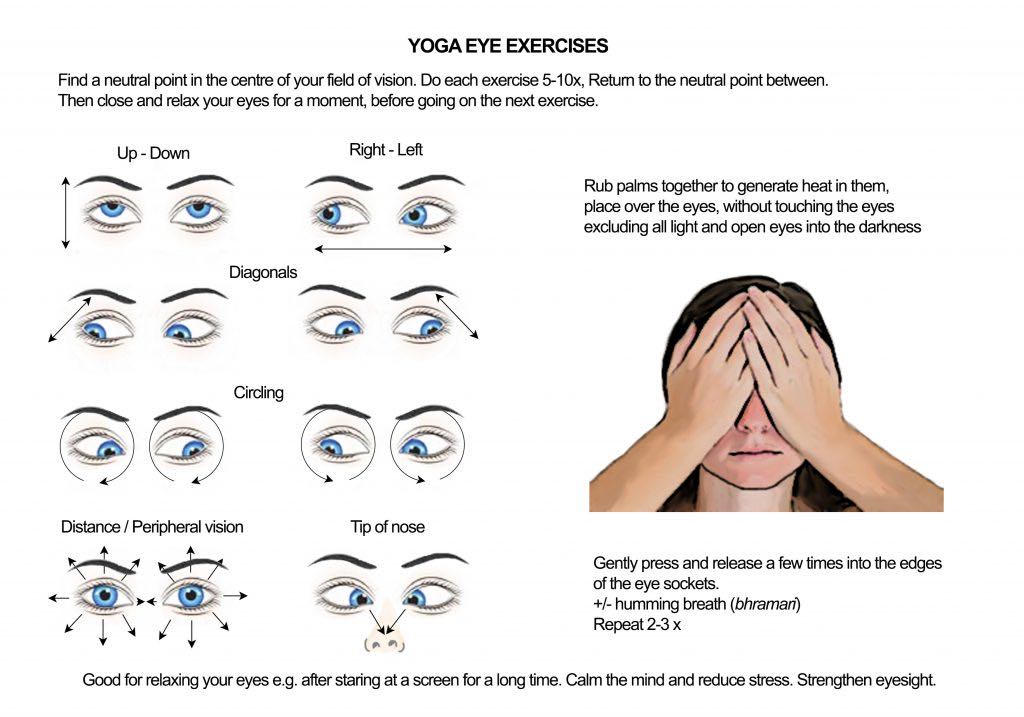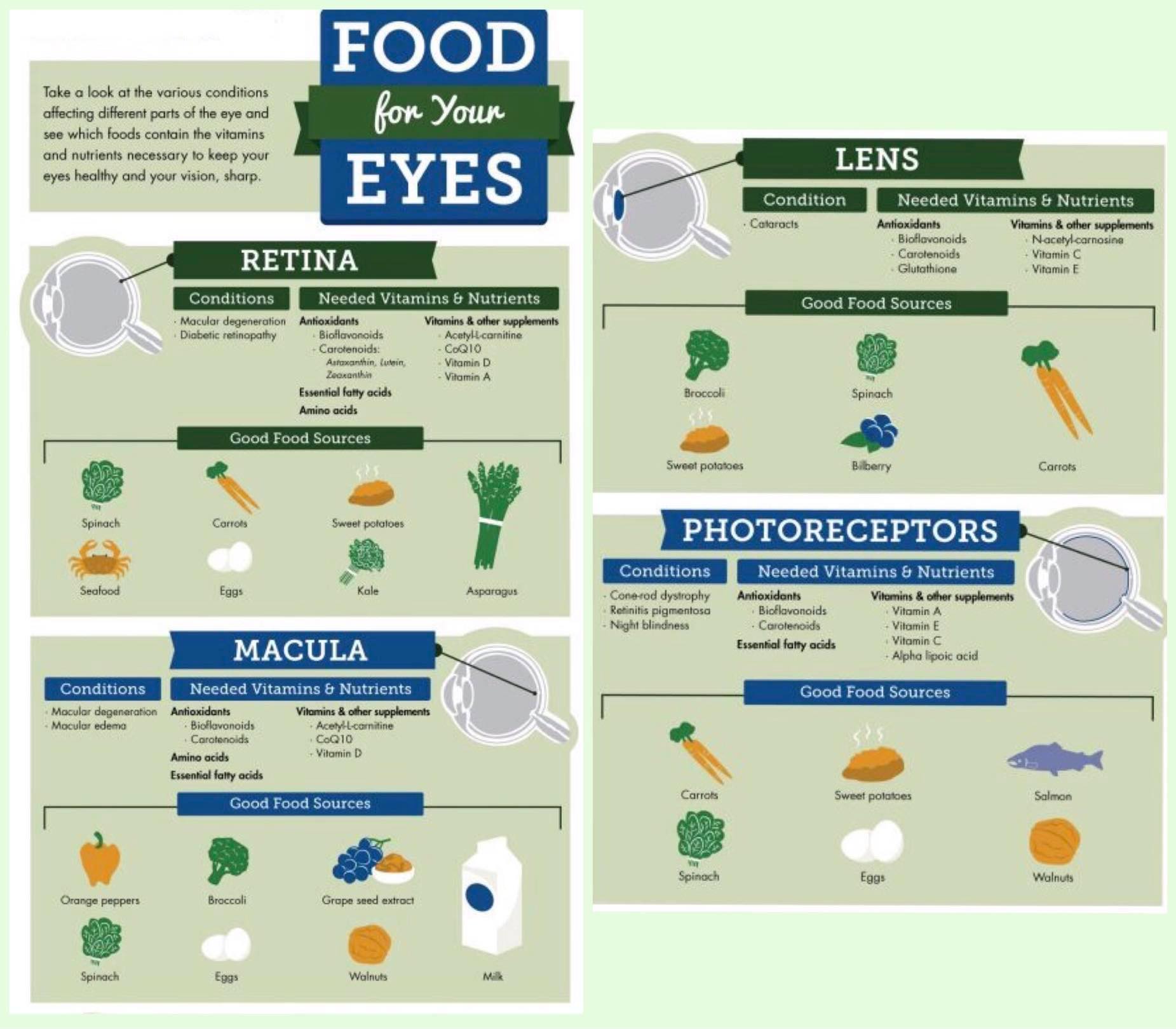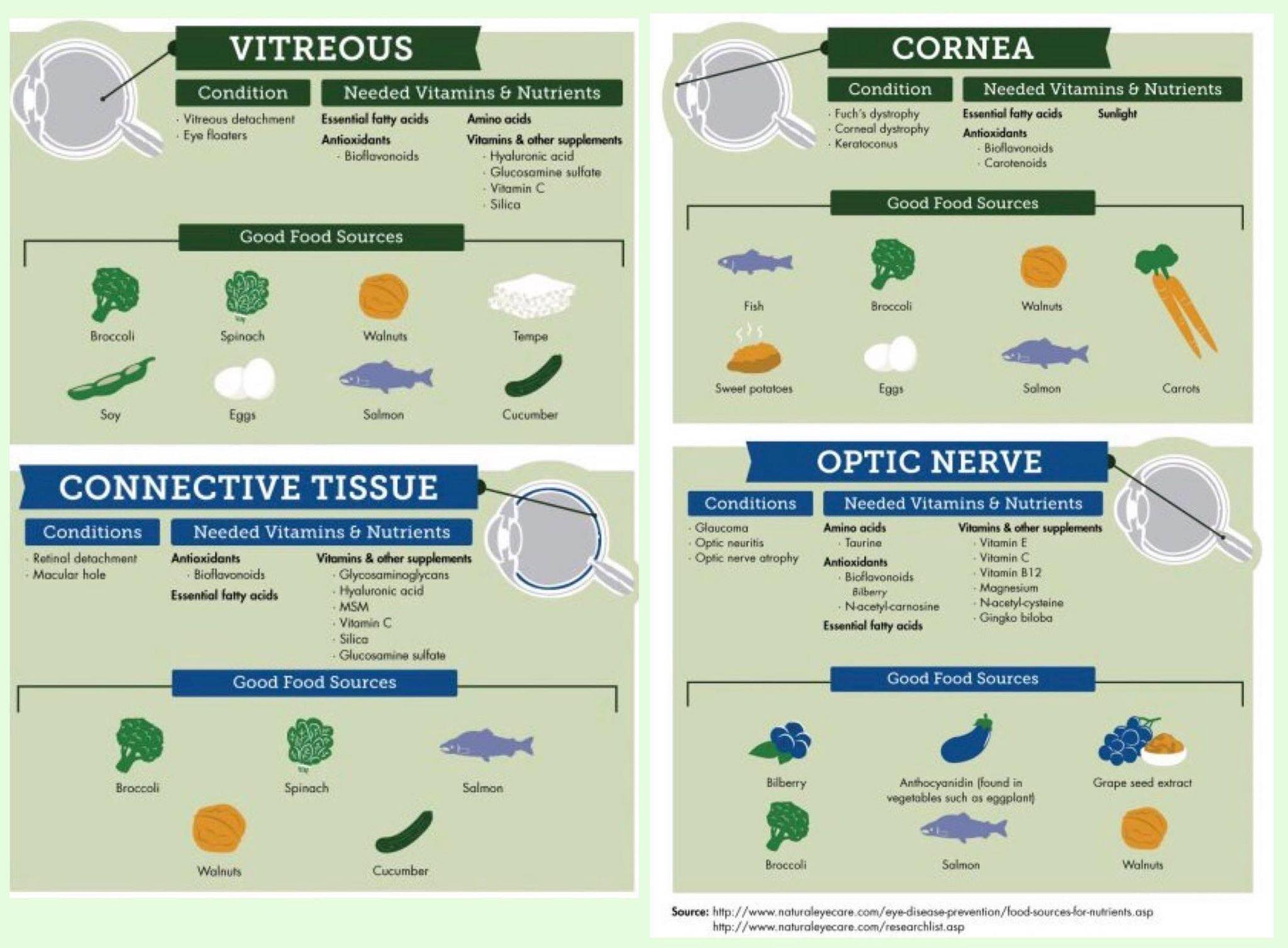
Transitioning from National Stress Awareness Month into Healthy Vision Month gives us pause to consider that one of the biggest contributors to vision issues is stress. And even though it sounds like a broken record, the best way to maintain strong vision is also the best way to maintain overall health. In other words, learning to deal with stress, eating a clean, healthy diet, getting lots of clean water and restful sleep and exercising regularly…all the things that we know we should be doing, but frequently don’t. Here are some specifics for Healthy Vision Month.
1. Sleep – Lack of sleep can cause vision problems. The eye needs at least five hours of sleep to be fully replenished. While asleep, important nutrients are delivered to the eye and thus, leave your eyes feeling and looking refreshed in the morning. Conditions like dry eye, eye spasms, bloodshot eyes and blurred vision are just some of the issues that can occur when you don’t get enough quality sleep. The goal should always be 7-8 hours of sleep per night.
2. Sunlight – For years now, sunlight has been treated as the villain when it comes to maintaining healthy vision. And while looking directly at the sun is not something you ever want to do, exposing your eyes to natural sunlight is actually a good thing. Exposing your eyes to early morning sunlight, for as little as 2 minutes, has been shown to increase mood and energy, improve sleep, slow the aging process and improve your vision. Eyes that lack exposure to natural light tend to look dull and lifeless and may also develop photophobia, which is extreme sensitivity to sunshine. Natural sunlight exposure has also been found to reduce the risk of nearsightedness in children and adults.
3. Exercise – The eye is a delicate and complex organ. Each eye is controlled by six small muscles. If these muscles are misused, over-worked, under-worked or used unevenly, a person can develop vision problems. A few minutes a day can strengthen the eye muscles, which allows for better function. Eye muscle issues are implicated in nearsightedness, farsightedness and astigmatism. Eye exercises can make the lens more flexible, while also relieving eye strain and supporting healthy circulation to the eyes. Here are some exercises you can incorporate into your daily fitness routine:

4. Healthy Food – The different parts of your eye have special needs. Many antioxidants, vitamins, minerals and fatty acids are needed for good vision. But different parts of the eye particularly need specific nutrients. A healthy diet can provide most of these nutrients – so, take a look at Food for Your Eyes.

 5. Manage Chronic Conditions – Diabetes isn’t the only disease that can affect your vision. Other chronic health conditions like high blood pressure, high cholesterol, multiple sclerosis and any disease that is linked to chronic inflammation can be harmful to all parts of your body. Inflammation of the optic nerve can cause pain and even complete vision loss. Inflammation is manageable with the use of a healthy diet and other healthy lifestyle choices.
5. Manage Chronic Conditions – Diabetes isn’t the only disease that can affect your vision. Other chronic health conditions like high blood pressure, high cholesterol, multiple sclerosis and any disease that is linked to chronic inflammation can be harmful to all parts of your body. Inflammation of the optic nerve can cause pain and even complete vision loss. Inflammation is manageable with the use of a healthy diet and other healthy lifestyle choices.
6. Handle Stress – Stress impacts your visual capabilities in different ways. Some of the most common signs of stress are dry eyes, double vision, blurred vision and eye twitching. Our bodies develop a natural response to any demand that upsets the natural equilibrium. In the case of a visual response, when the body is stressed, the pupils dilate to allow in more light so that you can see potential threats. This causes a rise in cortisol and adrenaline levels that can place additional pressure on the eyes. Mental stress can lead to vision symptoms that can affect one eye, switch from eye to eye, be present at all times or be intermittent. If you don’t learn how to deal with your stress, you can potentially go blind.
If you are dealing with vision issues, East Asian Medicine has a lot to offer. Acupuncture, moxibustion, photobiomodulation and herbal formulas can all be helpful in the treatment of most eye conditions. If you would like to know more, please contact our office at (317)529-7853.

